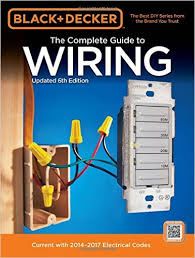House electrical wiring
#1
Since this forum seems to know, or at least have an opinion, about everything I figured I'd ask you all about home electrical wiring. I'm looking to add a couple of circuits for recessed lighting in two rooms, a garbage disposal, some outlets, a vent fan and a ceiling fan. I got a quote from an electrician at nearly $2k, not including fixtures, which seems a little ridiculous. I'd like to just do it myself but have a couple of concerns. First, permitting. My county requires a permit and inspection for ANY addition of high or low voltage electrical wire, to the extent that you technically need a permit for speaker wire. That being said, from talking to coworkers and electricians, it sounds as if no one ever actually gets a permit and just does the work. Does anyone have any experience in this area? The second concern is related to the first. Although I'm very confident that I can safely and effectively do this, I've heard anecdotally that if I do the wiring myself rather than hiring a licensed electrician that my insurance company could potentially use that as grounds to reject my claim if I ever have a house fire. I think that has a very low probability, but potentially catastrophic consequences. As far as I can tell, my policy doesn't discuss it other than requiring "due diligence". Thoughts?
#5
Unless you've owned the home for 1o years or so, it would be hard to prove any work wasn't done by the PO in the event of a fire.
I've never seen an electrical fire in a properly installed system, but I suppose **** sometimes happens.
Ask your commissioner for peace of mind. Permits are usually cheap, and Codrus is correct in saying electrician approval is sufficient in many cases.
I've never seen an electrical fire in a properly installed system, but I suppose **** sometimes happens.
Ask your commissioner for peace of mind. Permits are usually cheap, and Codrus is correct in saying electrician approval is sufficient in many cases.
#8
I have experience with permitting and inspection, in CA. I installed a 240v 60amp service panel 80ft across my yard and wired the shop. The permit was under the construction of the building, but required burial of conduit and installation of the panels.
I can tell you that the hardest part was finding out what my local codes were, they can vary from city to city or year to year. I just called the head guy and discussed my plan with him. He wouldn't outright tell me how to do it, but would tell me the acceptable standard. I wired it up like a properly built wiring harness with labels. junctions, proper gauge wire, and wire routing/securing. The guy inspected it all in 20 minutes and remarked that it was better than some of the "professional" jobs he had approved. Then he just wanted to talk about cars. The moral of the story is that if the job is big enough, don't be afraid to pull a permit. If it is a light in a closet, just do it.
I can tell you that the hardest part was finding out what my local codes were, they can vary from city to city or year to year. I just called the head guy and discussed my plan with him. He wouldn't outright tell me how to do it, but would tell me the acceptable standard. I wired it up like a properly built wiring harness with labels. junctions, proper gauge wire, and wire routing/securing. The guy inspected it all in 20 minutes and remarked that it was better than some of the "professional" jobs he had approved. Then he just wanted to talk about cars. The moral of the story is that if the job is big enough, don't be afraid to pull a permit. If it is a light in a closet, just do it.
#9
Joined: Jun 2005
Posts: 19,338
Total Cats: 574
From: Fake Virginia
codes are generally easy to find online.
NFPA 70: National Electrical CodeŽ
chances are what you want is covered in the NEC and you can get it for free.
There's also the ohio residential code:
Table of Contents
NFPA 70: National Electrical CodeŽ
chances are what you want is covered in the NEC and you can get it for free.
There's also the ohio residential code:
Table of Contents
#10
I've been studying the code (it sucks that a searchable pdf isn't available for free), which is straight forward for the most part, but not terribly prescriptive when it comes to what constitutes a modification to an existing circuit. From talking to an electrician and inspector, it sounds like inspectors have a fair amount of latitude when it comes to "old work". For example, it doesn't seem clear to me if the code permits extending existing ungrounded wires a very short distance to move a switch without rewiring the entire circuit to bring it up to current code. It is clear however,than any such splicing would need to be placed in a junction box.
Thread
Thread Starter
Forum
Replies
Last Post
Efini~FC3S
Insert BS here
25
04-01-2016 10:08 AM















